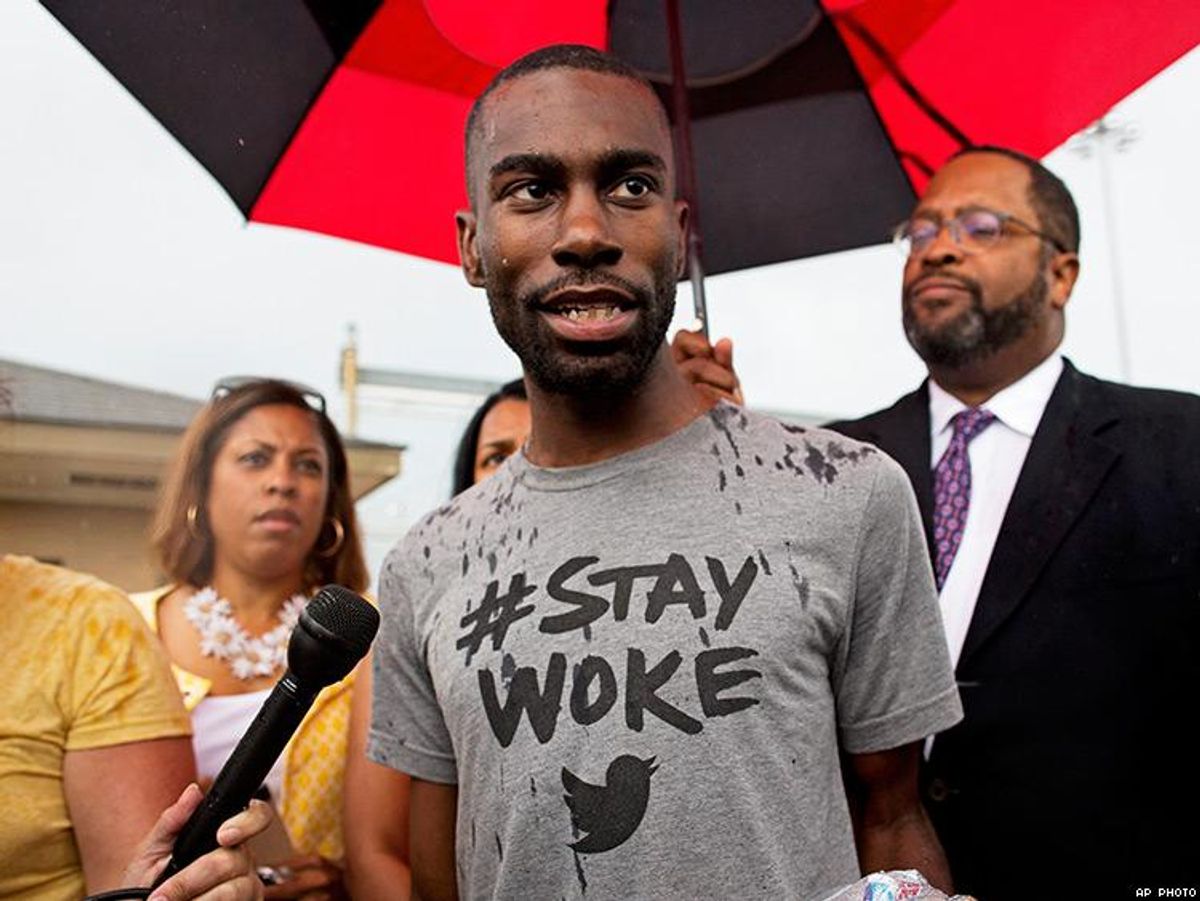A federal judge has dismissed a lawsuit against Black Lives Matter and one of its leaders, DeRay Mckesson, saying Black Lives Matter is a movement and as such can't be sued -- and a hashtag can't be sued either.
"Although many entities have utilized the phrase 'black lives matter' in their titles or business designations 'black lives matter' itself is not an entity of any sort," U.S. District Judge Brian A. Jackson wrote in dismissing the suit brought anonymously by a police officer in Baton Rouge, La., according to The Washington Post.
Because of this, Jackson said, Black Lives Matter cannot be sued "in a similar way that a person cannot plausibly sue other social movements such as the Civil Rights movement, the LGBT rights movement, or the Tea Party movement."
The plaintiff, called John Doe in court documents, said he was on duty at a rally July 9, 2016, in Baton Rouge, at which Black Lives Matter activists were protesting the fatal shooting of Alton Sterling, a black man, by a white officer. An unidentified protester threw a rock at the plaintiff, injuring his teeth and jaw, he said. He contended that the rally was meant to encourage violence against the police and that Mckesson should be held responsible as a leader of Black Lives Matter, which the suit called a "national unincorporated association," the Post reports.
Jackson was unconvinced. "Plaintiff has pleaded facts that merely demonstrate that Mckesson exercised his constitutional right to association and that he solely engaged in protected speech at the demonstration that took place in Baton Rouge on July 9, 2016," the judge wrote, according to the Post. Mckesson, he added, did not make any statements inciting violence and could not be held liable for the actions of others.
The Baton Rouge officer had sought to add the hashtag #BlackLivesMatter to the suit, a request Jackson denied, saying, "A hashtag is patently incapable of being sued." He continued, "Plaintiff's attempt to bring suit against a social movement and a hashtag evinces either a gross lack of understanding of the concept of capacity or bad faith."
The judge also denied the plaintiff's request to add Black Lives Matter Inc., a group connected to the movement, to the suit. In many cases, someone could sue an organized group associated with a political movement, but Black Lives Matter is an exception, he said.
Mckesson, a gay man who lives in Baltimore, responded to the ruling by telling the Post, "It is an expected tactic that those in power will try to use the courts to silence activists and organizers. I am thankful that the judge did not allow that to happen in this case."
Both the Post and The New York Times sought comment from the plaintiff's legal team but have yet to receive a response.
A similar suit is pending before the same judge, filed by a Baton Rouge police officer who was wounded during an attack last July in which a gunman killed three of his colleagues. He contends Mckesson and Black Lives Matter are responsible.













































































